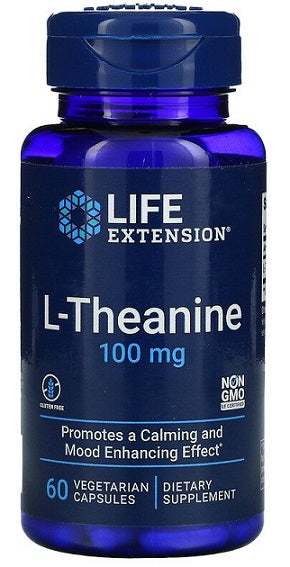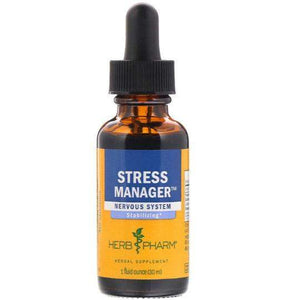What is a Cortisol Cocktail and What Does It Do?

Related products
What is Cortisol?
Cortisol, often referred to as the "stress hormone," plays a crucial role in the human body. Produced by the adrenal glands, it is pivotal in the regulation of various bodily functions, including metabolism, immune response, and the body's reaction to stress. However, persistent high levels of cortisol can lead to detrimental health effects. In response, the concept of a "cortisol cocktail" has emerged, purported to balance these hormone levels through a blend of natural supplements.
What is in a Cortisol Cocktail?
A cortisol cocktail typically consists of vitamins, minerals, and herbal supplements known for their stress-reducing properties. Key components may include vitamin C, known for its role in reducing cortisol, magnesium, which aids in relaxing the nervous system, and herbal extracts like ashwagandha, reputed to reduce stress and anxiety levels. Each ingredient is selected based on its potential to influence the body's hormonal balance and stress response mechanisms.
The constituents of the cortisol cocktail function synergistically to manage cortisol levels. For instance, vitamin C not only helps reduce cortisol after stressful situations but also supports the adrenal glands. Magnesium decreases the excitability of the nervous system, thus aiding in the reduction of stress and, consequently, cortisol levels. Herbal components like ashwagandha are believed to exert an adaptogenic effect, helping the body maintain homeostasis under stress.
What are the Effects of Cortisol on the Body?
Cortisol impacts the body in multiple ways. It regulates vital functions such as metabolism, immune response, and the body's reaction to stress. While necessary for health, elevated cortisol levels over prolonged periods can lead to adverse effects, including weight gain, particularly around the abdomen, increased blood pressure, and a higher risk of heart disease. High cortisol levels can also affect mental well-being, contributing to anxiety, depression, and problems with memory and concentration. Furthermore, chronic high cortisol can weaken the immune system, disrupt sleep patterns, and impact glucose metabolism, leading to a broader range of health issues.
The impact of cortisol on physical health
Elevated cortisol levels can lead to various physical health issues. Weight gain, particularly around the midsection, is a common consequence, as cortisol increases appetite and signals the body to shift metabolism to fast energy conversion. High cortisol levels are also linked with increased blood pressure and heart disease, as they constrict blood vessels and increase heart rate. "Long-term elevated cortisol levels are strongly correlated with cardiovascular diseases," notes Dr. Emily Henderson, an endocrinologist.
The impact of cortisol on mental health
Beyond physical health, elevated cortisol levels significantly impact mental well-being. They are associated with heightened stress, anxiety, and risk of depression. Cortisol can impair cognitive functions such as memory and concentration. Dr. Mark Thompson, a clinical psychologist, comments, "High cortisol levels can exacerbate the symptoms of stress and anxiety, leading to a debilitating cycle."
How chronic high levels of cortisol can affect overall health
Chronically elevated cortisol levels strain almost every aspect of bodily function. They can weaken the immune system, making the body more susceptible to infections and illnesses, disrupt sleep patterns, leading to insomnia and fatigue, and even affect fertility. The cumulative effect of these factors can severely deteriorate one's quality of life.
How Does a Cortisol Cocktail Work?
The cortisol cocktail is believed to modulate cortisol levels through its blend of ingredients, each targeting different aspects of cortisol production and regulation. The interaction of these substances may help normalise adrenal function and restore hormonal balance, thereby reducing the physiological impacts of stress on the body.
While many anecdotes praise the efficacy of cortisol cocktails, scientific evidence remains mixed. Some studies have found that ingredients such as ashwagandha and magnesium can reduce cortisol levels and improve stress-related outcomes. However, research is ongoing, and experts like Dr. Laura Martin, a hormone specialist, urge caution, stating, "While initial results are promising, more comprehensive studies are needed to fully understand the efficacy and safety of these cocktails."
Possible side effects and contraindications
Despite the natural basis of most cortisol cocktail components, potential side effects and contraindications exist. Over-supplementation can lead to issues such as digestive distress, sleep disturbances, and in the case of minerals like magnesium, more serious conditions such as heart rhythm changes. It is essential for individuals to consult healthcare professionals before starting any new supplement regimen, especially if they have pre-existing conditions or are taking other medications.
What are Alternatives to Cortisol Cocktails?
Alternatives to cortisol cocktails for managing stress and cortisol levels include lifestyle modifications such as adopting a balanced diet, engaging in regular physical exercise, and implementing stress-reduction techniques like mindfulness meditation, yoga, and deep breathing exercises. Other alternatives include herbal remedies like ashwagandha, Rhodiola rosea, and holy basil, which are known for their adaptogenic properties that help the body cope with stress. Additionally, ensuring adequate sleep, maintaining social connections, and seeking professional counseling or therapy can also be effective in managing cortisol levels. It's crucial to approach cortisol management holistically, considering both physical and mental health aspects.
Lifestyle changes for managing cortisol levels
Effective management of cortisol levels can often be achieved through lifestyle modifications. A balanced diet, rich in whole grains, fruits, and vegetables, and low in sugar and caffeine, can help stabilize cortisol levels. Regular physical activity, particularly aerobic exercises, has been proven to reduce cortisol and improve stress resilience. Furthermore, stress management techniques such as mindfulness, meditation, and deep breathing exercises can significantly lower stress and, consequently, cortisol levels. Dr. Hannah Roberts, a lifestyle medicine specialist, advocates, "Incorporating these practices into your daily routine can provide long-term benefits for stress reduction and overall health."
Other medical or herbal treatments available
Beyond cortisol cocktails, other treatments can help manage cortisol levels. Medical options include medications like phosphatidylserine, prescribed under medical supervision, which has been shown to decrease cortisol in response to stress. Herbal remedies like Rhodiola rosea and Holy basil have been traditionally used for their adaptogenic properties, helping the body resist physical and mental stressors.
Comparison between these alternatives and cortisol cocktails
While cortisol cocktails offer a direct approach to managing cortisol levels through supplementation, lifestyle changes and other treatments provide a broader foundation for long-term health and well-being. Unlike the immediate but potentially short-lived effects of cortisol cocktails, lifestyle adjustments and other herbal remedies may offer sustainable, long-term benefits without the risk of side effects associated with over-supplementation. However, the choice between these options should be tailored to the individual's specific health needs, preferences, and medical advice.
People Also Ask
What drinks are good for cortisol levels?
Drinks that are beneficial for managing cortisol levels typically include herbal teas, green tea, and water infused with adaptogenic herbs. Herbal teas such as chamomile, peppermint, and lemon balm are known for their calming properties, which can help reduce stress and, consequently, cortisol levels. Green tea contains theanine, an amino acid that promotes relaxation and is associated with lower cortisol levels. Additionally, drinks infused with adaptogens like ashwagandha or holy basil may also help balance cortisol levels due to their stress-reducing effects. It's important to note, however, that maintaining adequate hydration by drinking plenty of water is also crucial for regulating cortisol and overall bodily functions.
What is the best supplement to take for cortisol?
The best supplement to take for managing cortisol levels may vary depending on individual health needs and conditions. However, some commonly recommended supplements include phosphatidylserine, ashwagandha, Rhodiola rosea, and magnesium. Phosphatidylserine has been shown to help lower cortisol levels and mitigate the body’s response to stress. Ashwagandha and Rhodiola rosea are adaptogenic herbs that help the body resist physical and mental stressors, potentially reducing cortisol production. Magnesium helps to relax the nervous system, which can be beneficial in lowering stress and cortisol levels. It is essential to consult with a healthcare provider before starting any new supplement to ensure it is safe and appropriate for your individual health situation.
How do you lose cortisol belly fat?
Losing cortisol-related belly fat involves a combination of stress management, healthy eating, and regular physical activity. To manage stress and subsequently reduce cortisol levels, practices such as mindfulness, meditation, deep breathing exercises, and adequate sleep are beneficial. A balanced diet that limits high-sugar and high-fat foods while including plenty of fruits, vegetables, whole grains, and lean proteins can help manage weight and reduce abdominal fat. Regular physical activity, especially cardiovascular exercises and strength training, can also aid in losing belly fat by improving metabolism and reducing stress. It's important to create a sustainable and balanced approach tailored to your lifestyle and health needs.
What is a natural cortisol blocker?
Natural cortisol blockers are substances that can help reduce the body's cortisol levels. Some examples include adaptogenic herbs such as ashwagandha, Rhodiola rosea, and holy basil, which are known to help the body resist stressors and thus potentially reduce the production of cortisol. Other natural compounds like omega-3 fatty acids, found in fish oil and flaxseeds, have been linked to lower cortisol levels and improved stress responses. Additionally, maintaining a regular sleep schedule and incorporating relaxation techniques such as yoga and meditation into your daily routine can naturally help regulate cortisol production. It's essential to approach cortisol management holistically, considering both dietary and lifestyle factors.
Conclusion
Cortisol cocktails present one of several avenues for managing elevated cortisol levels and the associated effects of stress. While they can offer a targeted approach to hormonal balance, it's crucial to consider the broader spectrum of options available, including lifestyle modifications and other medical or herbal treatments. The efficacy of cortisol cocktails, like any other treatment, varies from person to person and must be approached with a balanced perspective, incorporating professional medical advice and individual health needs. Ultimately, the goal is to adopt a holistic approach to stress management, encompassing a variety of strategies tailored to individual preferences and health requirements.






















 Rated Excellent by 26,523+ Reviews
Rated Excellent by 26,523+ Reviews